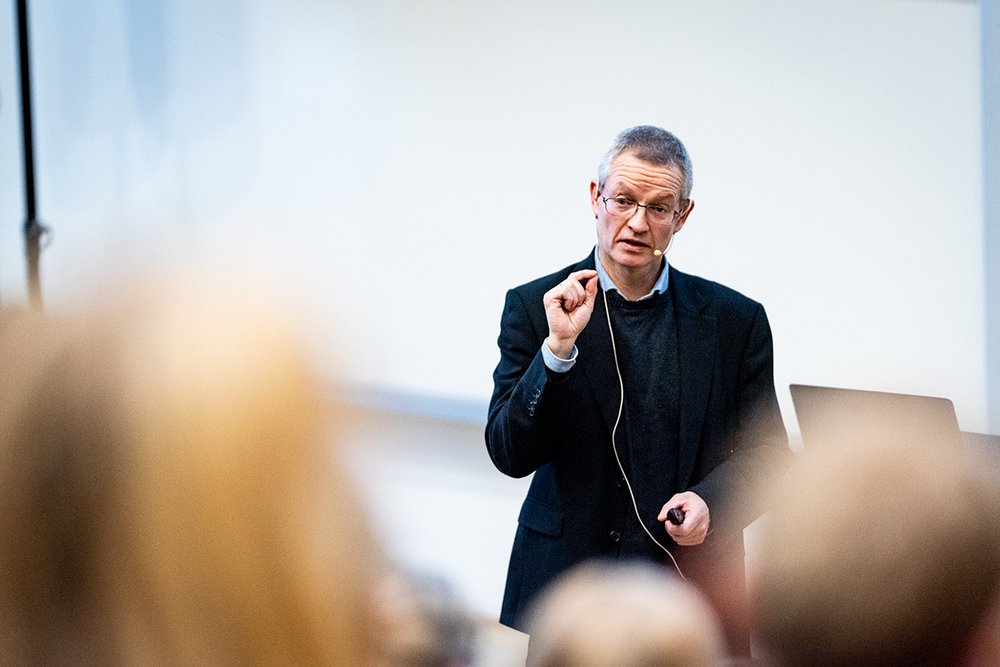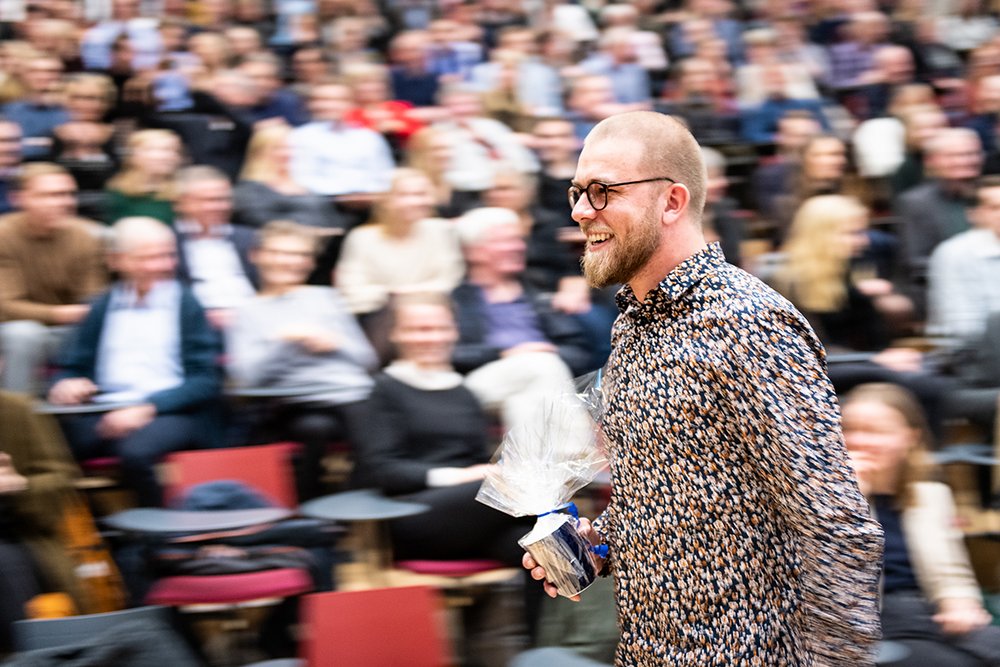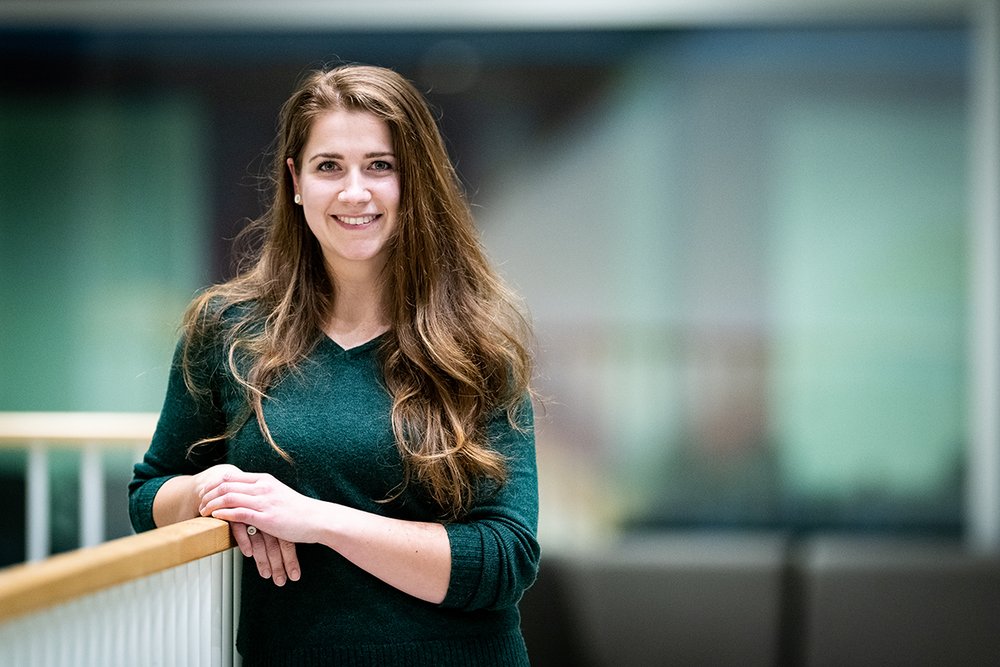Thanks for now! Another group of Denmark's most coveted students leaves AU
"You’re bombarded with invitations from businesses and head-hunters," says one of the many new MSc’s in Engineering who graduated from Aarhus University last Thursday.

The Auditorium at Navitas, Aarhus Docklands, was filled to bursting with happy faces as a new clutch of MSc Eng’s graduated from the Department of Engineering, Aarhus University, on Thursday 24 January.
And there is good reason for the rather contented atmosphere: the young graduates are now being released into a world yearning for highly qualified technical specialists.
"With an MSc in Engineering, the door is open wherever in the world you want to go. The global community has an immense need for your high-tech knowhow. The shortage of engineers today is more serious than ever," said Thomas Toftegaard, department head at the Department of Engineering.
Half a million DKK a year
The most recent projection from the Danish Society of Engineers (IDA) shows that Denmark will face massive shortages of highly educated technological labour in 2025. Denmark will lack almost 7,000 engineers, even though the intake on Danish engineering programmes has increased markedly in recent years.
"It's no secret that putting more MSc in Engineering graduates in the world is a very important task for us. You are and always will be our most important ambassadors to the outside, and therefore we hope that you’ll help spread the word about your time here at Aarhus University. This is absolutely vital, if we’re to have enough engineers for the society of the future," continues Thomas Toftegaard.
(The article continues below the picture)

"You are and always will be our most important ambassadors to the outside," said Thomas Toftegaard, department head at the Department of Engineering, at the graduation. Photo: Henrik Olsen.
The shortage of engineers is also apparent in pay statistics, and new MSc Eng graduates have seen exceptional pay increases in recent years.
The recommended minimum wage for a newly qualified MSc in Engineering is now DKK 39,800 (EUR 5,300) a month, and after a few years in the labour market, average pay rounds the DKK 60,000 (EUR 8,000) level.
In other words, almost DKK 500,000 (EUR 66,500) per year for a new graduate.
Proud, determined and dedicated
One of those who saw the shortage of engineers while studying is 25-year-old Christian Graabæk. He graduated on Thursday and is now a qualified MSc in Engineering in computer technology. And although he actually got a job as long as two years ago, when he started his studies he could really feel that companies from all over the country were eager to talk to him:
"You’re bombarded with messages on LinkedIn and elsewhere from businesses and head-hunters who’re interested in you. I received at least 15 job offers just last week. It’s crazy,” he says.
(The article continues below the picture)

Christian Graabæk graduating as MSc in computerengineering. He's soon off to Australia for seven months with his girlfriend, and the job is going with him. Photo: Henrik Olsen.
And even though Christian is now taking seven months in Australia with his girlfriend, his job is going with them. It means a lot to him that he has this opportunity, despite being only graduating recently.
"I’m so pleased that I decided to take an MSc in Engineering. I’m so proud. I've really moved forward, especially over the past two years. And that people know that I’ve taken a long further education course means something. It shows what I can do. It shows that I’m determined and dedicated," he says.
A string of eureka moments
Another graduate on her way into the business community is 28-year-old Alissa Jørgensen. She has just been completed her MSc in Engineering in chemistry and biotechnology, and she would like to work with removing microplastics in wastewater treatment plants.
To her, the journey through her Master's programme has been "a string of eureka moments," and she’s actually considering a research career:
"If an exciting project crops up, I could well go into research. There’s a lot of interesting things going on at the university, so you never know."
(The article continues below the picture)

Alissa Jørgensen also graduated Thursday. She's planning on taking her researchbased knowledge with her out into the great wide world, which now lies completely open in front of her. Photo: Henrik Olsen.
READ MORE: Mimicking nature to produce green chemicals using the power of light
Right now, however, she is looking for jobs in the private sector - hopefully jobs that will take her out into the world:
"I'd love to travel and use my education to benefit other communities. I’ve just applied for a job with 120 days of travel a year, and I think it sounds very exciting and attractive."
Fortunately, there are rich opportunities to go out into the world as an engineer. Chemistry and biotechnology are both areas that now and in the future will have enormous significance, if humanity is to be able to solve some of the major issues facing us today.
Aarhus University would like to say a big “thank-you” to all the graduates. We have been pleased to have you all, and we wish you all the very best for the future.
Read more about Master of Science in Engineering degree programmes at Aarhus University here
